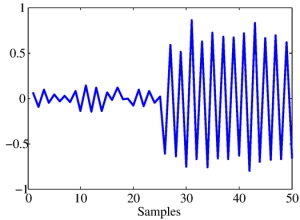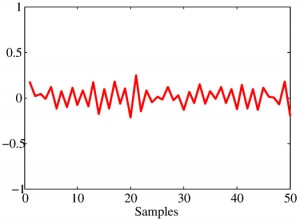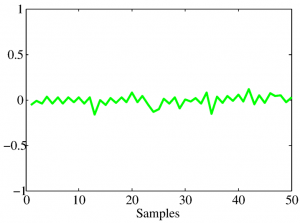Fault Detection and Isolation in Switched Linear Systems and Applications
Madi Zholbaryssov with adviser A. Domínguez-Garcí

Figure 30 (a): Residual generator response for 400 μH to 120 μH change in the value of L1 – L1 residual
We propose a fault detection and isolation (FDI) method for switched linear systems. The method builds on using an observer-based FDI filter developed for linear time-invariant systems. If certain conditions are satisfied, then it is possible to apply this filter to switched linear systems. When system parameters slowly change, a system is considered to be in a faulty mode. In the absence of faults, the system dynamics are described by a switched linear state-space model. In a faulty mode, the state-space model is modified by adding disturbance terms associated with parameter changes and component degradations. An FDI filter consists of a bank of reduced-order observers with residual generators which have certain geometric properties that allow detecting and isolating faults.
We demonstrated the practical feasibility of our approach by applying it to a photovoltaic system with differential power processing converters. Our experimental results confirmed that an FDI filter can detect and pinpoint multiple faults which can simultaneously affect a system.Consider a scenario when a fault is injected into the system by decreasing the inductance of L1 from 400 μH to 120 μH. Figure 30 (a – c) shows the response of the residual generators to an injected inductor fault. Before a fault (first 100 samples) is injected into inductor L1, all residuals are essentially zero, corresponding to the normal pre-fault operation. As soon as a fault is injected (last 100 samples), a residual for L1 responds to the fault, while other residual generators remain insensitive to that fault.
This research was supported in part by the Department of Energy under contract number DE-AR0000217 and NSF ECCS under contract 09-54420 CAR.

